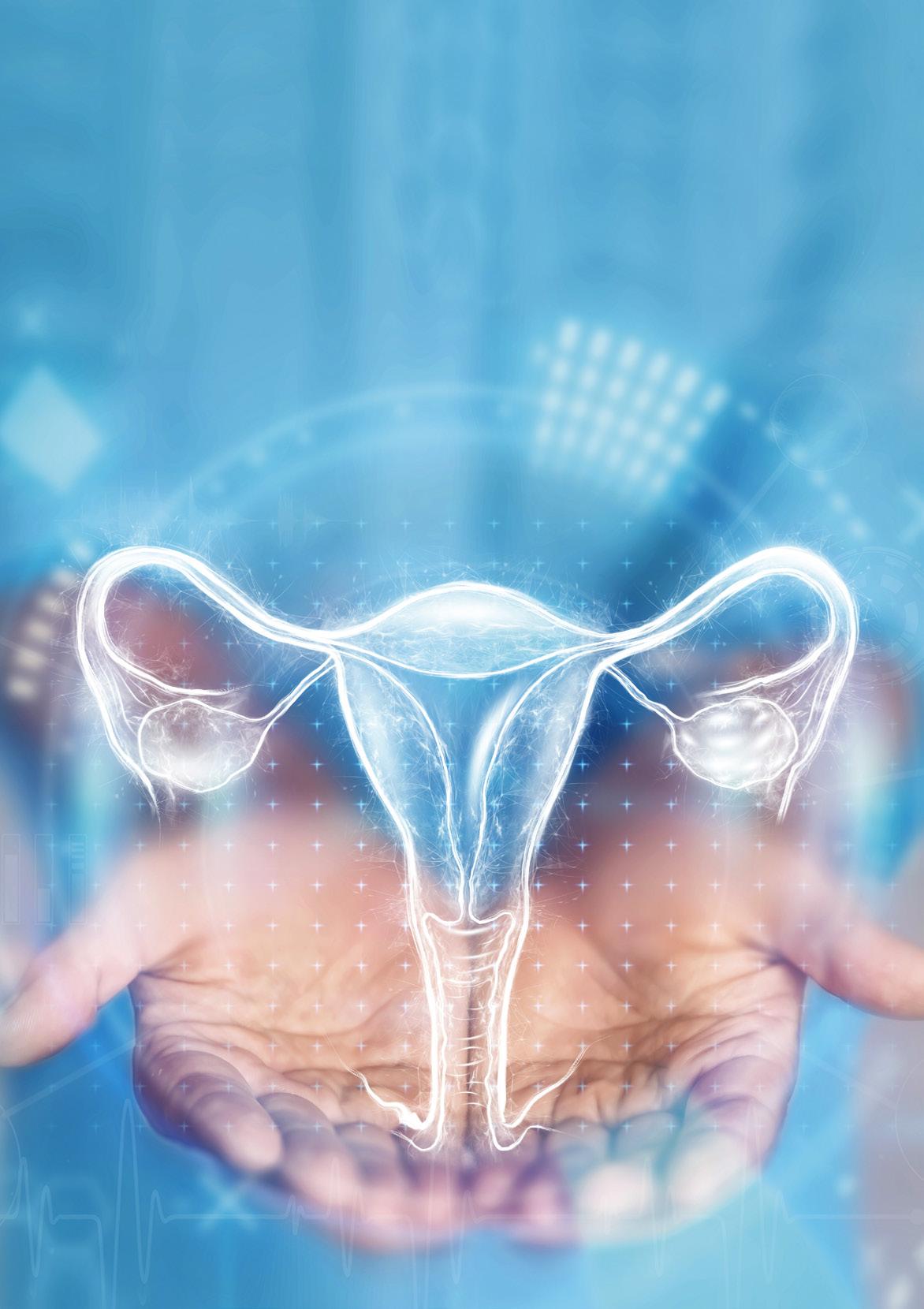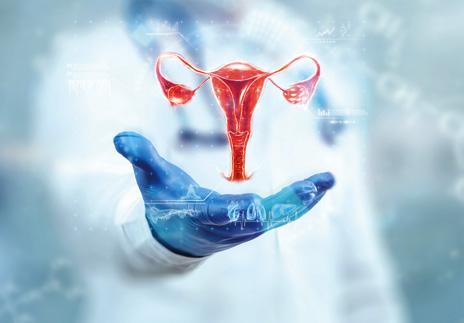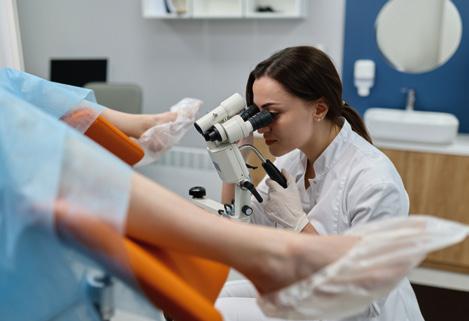
6 minute read
What is PCOS
PCOS stands for Polycystic Ovary Syndrome. It is a hormonal disorder that mainly affects women of reproductive age - although women in their 50s also may present symptoms.*
The exact cause of PCOS is unknown, but it is thought to be related to insulin resistance, which can lead to an overproduction of male hormones (androgens). This hormonal imbalance can cause problems with ovulation and lead to the formation of multiple small cysts on the ovaries.
Advertisement
There is no cure for PCOS, but it can be managed with lifestyle changes such as weight loss, regular exercise, and a healthy diet. Hormonal birth control can also be used to regulate periods and reduce androgen levels. In some cases, fertility treatments may be necessary to help women with PCOS conceive.
What are the symptoms of PCOS?
PCOS can present a range of symptoms, and not all women with PCOS experience the same set of symptoms. The symptoms of PCOS can include:

1. Irregular periods or no periods: Women with PCOS may experience irregular periods or no periods at all.
2. Excess hair growth: PCOS can cause excess hair growth on the face, chest, back, and other parts of the body.
3. Acne: Women with PCOS may experience acne or other skin problems.
4. Weight gain: PCOS can cause weight gain, particularly in the abdominal area.
5. Difficulty getting pregnant: Women with PCOS may have difficulty getting pregnant due to irregular ovulation or lack of ovulation.
6. Fatigue: Some women with PCOS may experience fatigue or low energy levels.

7. Mood changes: PCOS can cause mood swings and other emotional symptoms.
8. Sleep problems: Women with PCOS may experience sleep problems such as insomnia.
It is important to note that not all women with PCOS will experience all of these symptoms, and some women may experience additional symptoms not listed here. If you suspect you may have PCOS, it is important to speak with your healthcare provider for a proper diagnosis and treatment plan.
What can women do to help themselves with PCOS?
Women with PCOS can take several steps to help manage their symptoms and improve their overall well-being. Here are some self-help strategies that may be beneficial:
1. Maintain a healthy diet: Adopting a balanced and nutritious diet can help manage PCOS symptoms. Focus on whole foods, including fruits, vegetables, lean proteins, and whole grains. Limit processed foods, sugary snacks, and drinks. Consider consulting a registered dietitian for personalized dietary advice.
2. Regular exercise: Engaging in regular physical activity can help improve insulin sensitivity, promote weight management, and reduce PCOS symptoms. Aim for at least 150 minutes of moderate-intensity aerobic exercise per week, such as brisk walking, cycling, or swimming.

3. Weight management: If overweight or obese, losing as little as 5-10% of body weight can help regulate menstrual cycles, improve hormone balance, and alleviate symptoms. Combined with a healthy diet and exercise, weight management can be an effective approach for managing PCOS.
4. Birth control pills: Hormonal birth control methods, such as combination birth control pills, can help regulate menstrual cycles and reduce symptoms such as excess hair growth and acne. Consult with a healthcare provider to discuss the most suitable options.
5. Anti-androgen medications: In cases where excess hair growth or acne is a concern, medications that block the effects of androgens (male hormones) may be prescribed to manage these symptoms.
6. Fertility treatment: If trying to conceive, women with PCOS may need assistance from fertility treatments such as ovulation induction or in vitro fertilization (IVF). Consulting with a reproductive endocrinologist can provide guidance on the most appropriate fertility treatment options.
7. Stress management: Stress can exacerbate PCOS symptoms. Engage in stress-reducing activities such as yoga, meditation, deep breathing exercises, or engaging in hobbies to help manage stress levels.
8. Regular check-ups: Regular visits to a healthcare provider are crucial for monitoring PCOS symptoms, managing any potential complications, and adjusting treatment plans if necessary.

*In rare cases PCOS can also become a problem for women in their 50s but their symptoms can vary and may present differently.
Here are some key points to consider:
1. Menopause: Women over 50 are likely to be in or approaching menopause, which can lead to changes in hormone levels and menstrual patterns. PCOS symptoms such as irregular periods may be less prominent or may have already resolved due to natural hormonal changes associated with menopause.
2. Persistence of symptoms: While some symptoms of PCOS, such as irregular periods and fertility issues, may improve with age, other symptoms may persist or develop. These can include excess hair growth (hirsutism), weight gain, acne, and metabolic issues such as insulin resistance.
3. Increased risk of metabolic complications: PCOS is associated with an increased risk of metabolic disorders such as type 2 diabetes, high blood pressure, and high cholesterol. As women age, the risk of these conditions also increases. Therefore, women with PCOS over 50 should be particularly mindful of their metabolic health and work closely with their healthcare providers to manage and monitor these risks.
4. Hormone replacement therapy (HRT): Women in their 50s may consider hormone replacement therapy (HRT) to manage menopausal symptoms. The use of HRT in women with PCOS over 50 should be discussed with a healthcare provider, taking into consideration the individual's specific symptoms, medical history, and potential risks and benefits.
5. Regular check-ups: Women with PCOS over 50 should continue to have regular check-ups with their healthcare providers to monitor any ongoing symptoms, manage any potential health risks, and ensure appropriate preventive care.
It's important to remember that every individual with PCOS is unique, and treatment plans should be tailored to their specific needs. Consulting with a healthcare provider who specializes in PCOS is essential for comprehensive care and guidance.











